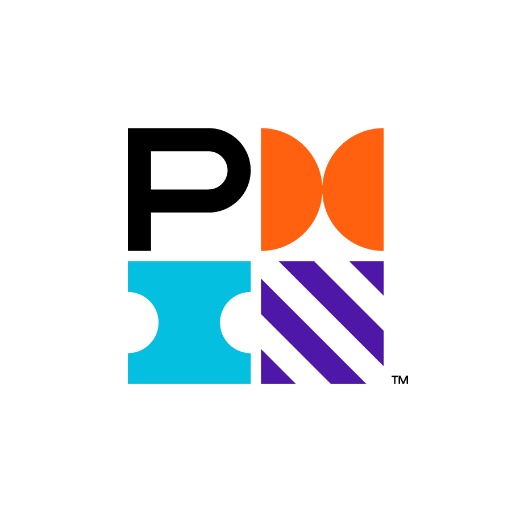Skool Community Guide-Skool Community Management Guide
AI-Powered Community Growth and Monetization
How to use Skool effectively?
Should I offer a free or paid group?
How should I operate a Skool group?
What is the Skool "Funnel"?
Related Tools
Load More私立GPT北高校|GPT North High School
学園モノ恋愛ゲーム|AI-powered dating game set in a high school

생기부,학생부,생활기록부(행발,세특,동아리,스포츠클럽,자유학기,자율) 초등,중학교,고등학교
초등학교, 중학교, 고등학교, 학원 (생기부,행동특성,종합의견 ,행발,교과세특, 과세특,세특,특기사항,창체,진로,자율활동,동아리,자유학기,자유학년,스포츠클럽,담임,교사,교과목,선생님,학생,학교)를 대신 작성해 드립니다. =버전 V.2.5=

Academic Mentor
Grad school application coach for Master's and Ph.D. hopefuls.

SFMC Mentor
Your guide to mastering Salesforce Marketing Cloud.

Teach & Lead Pro
A specialist in educational coaching, skilled in aiding educators and leaders, with practical insights and guidance.

Schulleitung GPT
Experte in Schulmanagement, Projektplanung & Berufsbild Schulleitung
20.0 / 5 (200 votes)
Introduction to Skool Community Guide
The Skool Community Guide is a specialized assistant designed to help users develop, maintain, and monetize online communities on Skool.com. It follows the teachings of Andrew Kirby, focusing on creating free group funnels that are engaging and easy to manage. The guide offers comprehensive strategies for community engagement, workflow management, and monetization. For example, it provides insights on how to create engaging posts, set up group calls, and celebrate milestones to keep members interested. It also advises on monetization techniques such as using direct messages, email broadcasts, and special events for upselling, as well as leveraging locked courses for exclusive content. The overall design purpose is to ensure that users can create a thriving, interactive community that also generates revenue with minimal effort.

Main Functions of Skool Community Guide
Community Management Workflows
Example
Creating a weekly content schedule to keep the community engaged.
Scenario
A community manager can set up a schedule where they post discussion topics, host live Q&A sessions, and share valuable resources every week. This consistent engagement keeps the community active and involved.
Creating Engaging Posts
Example
Using polls and interactive questions to spark discussions.
Scenario
A user posts a poll asking community members about their preferences for upcoming webinar topics. This not only engages the members but also provides valuable feedback for future content planning.
Setting Up Group Calls
Example
Organizing monthly group calls to discuss progress and challenges.
Scenario
A fitness coach with an online community schedules monthly Zoom calls to check in with members, discuss their progress, and address any challenges they're facing. These calls foster a sense of community and provide personalized support.
Celebrating Milestones
Example
Highlighting member achievements in the community.
Scenario
When a member completes a significant course module or achieves a notable goal, the community manager posts a congratulatory message and shares their success story with the group. This not only motivates the individual but also inspires other members.
Monetization Strategies
Example
Offering locked courses for exclusive access.
Scenario
A course creator offers free basic content but locks advanced modules behind a paywall. Members who find the basic content valuable are encouraged to purchase access to the premium material, generating revenue for the creator.
Direct Messaging for Upselling
Example
Sending personalized messages to promote premium services.
Scenario
A community manager identifies highly engaged members and sends them direct messages offering a discount on a premium course or one-on-one coaching sessions. This targeted approach increases the likelihood of conversion.
Email Broadcasts
Example
Using email newsletters to announce special events.
Scenario
A community leader sends out a monthly newsletter highlighting upcoming events, new content releases, and special offers. This keeps the community informed and engaged while also providing opportunities for monetization.
Special Events in the Calendar
Example
Scheduling webinars and workshops.
Scenario
An entrepreneur organizes a series of live workshops on specific topics related to their community's interests. These events are promoted through the community calendar, and members can sign up and attend to gain deeper insights and knowledge.
Ideal Users of Skool Community Guide
Community Managers
Individuals responsible for overseeing and engaging with online communities. They benefit from the guide's strategies for maintaining an active and vibrant community, such as creating engaging content and organizing events.
Content Creators and Educators
People who create courses, webinars, and other educational content. The guide helps them monetize their efforts through strategies like locked courses and special events, ensuring a steady revenue stream.
Entrepreneurs and Business Owners
Those looking to build a community around their brand or products. They can leverage the guide's monetization tactics, such as direct messaging and email broadcasts, to increase sales and build customer loyalty.
Coaches and Consultants
Professionals offering personalized services who want to create a community to support their clients. The guide's insights on setting up group calls and celebrating milestones help them provide better support and maintain high client engagement.

How to Use Skool Community Guide
Step 1
Visit aichatonline.org for a free trial without login, also no need for ChatGPT Plus.
Step 2
Set up your Skool account and create your community group. Ensure you understand the basics of Skool's features and community guidelines.
Step 3
Familiarize yourself with community management workflows. This includes posting regularly, moderating discussions, and encouraging member participation.
Step 4
Utilize Skool's engagement tools effectively. Schedule group calls, celebrate milestones, and create engaging posts to maintain active participation.
Step 5
Monetize your community through direct messages, email broadcasts, and special events. Leverage locked courses and Skool's affiliate feature for additional revenue.
Try other advanced and practical GPTs
Executive GPT - AGI for Large tasks
AI-powered solutions for complex tasks.

Eva 🐘: The Most Natural Sounding Translator
AI-powered translation with cultural insights.

バナー生成【日本語入力可】<banner creator>
AI-powered, custom banner creation

IntiLex - Derecho Ecuatoriano 🇪🇨
AI-powered Ecuadorian legal assistant for research and analysis

Calorie tracker
AI-powered nutritional analysis tool

PMI Infinity - PMP Exam Simulator
AI-Powered PMP Exam Prep Tool

Auto-Dex: Vehicle Detail Researcher
AI-powered vehicle detail researcher.

ONLY CODE
AI-Powered Code Responses

Hydra by Rightsify - AI Music Generator
Create Unique Music with AI Power

Virtual Co-founder
AI-powered insights for entrepreneurs

Pic2Anime (your picture to animation)
Transform your photo into animation with AI.
Player2.tax
AI-powered Australian tax assistance

- Event Planning
- Monetization
- Community Building
- Passive Income
- Member Engagement
Detailed Q&A about Skool Community Guide
What are the prerequisites for using the Skool Community Guide?
The prerequisites include having a Skool account, understanding Skool's basic features, and a clear strategy for community engagement and monetization.
How can I maintain an active community on Skool?
Maintain an active community by regularly posting engaging content, scheduling group calls, celebrating member milestones, and using Skool’s engagement tools effectively.
What are the best ways to monetize my Skool community?
Monetize your community by offering exclusive content through locked courses, sending targeted email broadcasts, conducting special events, and using direct messages for upselling.
How do I use Skool's affiliate feature for passive income?
Promote Skool's affiliate feature to your members, encouraging them to start their own groups. You earn passive income through commissions when they sign up using your referral link.
What tips can help optimize the use of Skool Community Guide?
Tips include: setting clear goals, using analytics to track engagement, staying consistent with posts, interacting personally with members, and continually adapting strategies based on feedback.